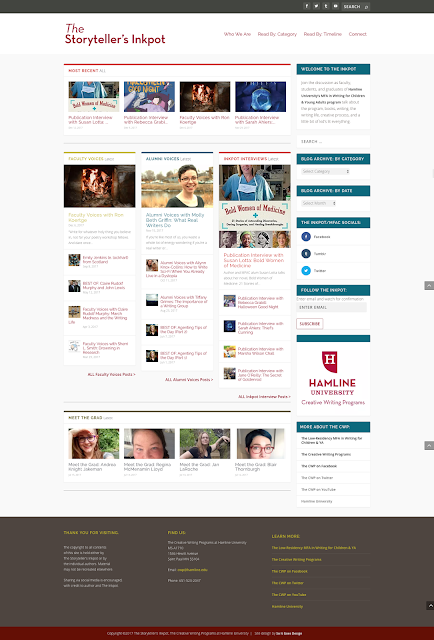“It’s difficult to focus on writing, particularly fiction, when the world feels like it’s on fire.”
Hugo award winning author,
John Scalzi wrote that recently, in
an article for the Los Angeles Times. He talks about how hard it is for science fiction writers to write their stories these days, because it feels like we’re living in a dystopian novel already.
And maybe that’s what I’ve been feeling lately. And that’s why it’s been so hard to sit down and write. I have stories waiting to be told. They mill around in the back of my mind, waiting for my fingers to get going. The characters talk to me while I’m reading a book, or binge-watching a show on TV. Or I suddenly decide to do yard work when I haven’t done that in years. The characters shout, “Hey! When are you going to finish our story?”
 |
| Ailynn and Rose |
But when you wake up each day to the rubbish that’s happening in our country, (can I say ‘crap’?), it’s hard to peel oneself off the floor, to sit in a chair and type up a story about a horrible but hopeful fictional future – when the real future looks even worse.
I could ignore the news. I could cut myself off entirely from social media, radio, TV, talking to people. But I’m not that disciplined.
But I had a deadline for this article. So what did I do? I procrastinated. Which led me to re-reading my Hamline lecture notes. And guess what I found? Wisdom. Inspiration. Treasure! And I’d only read the notes from July 2015, residency #2. I’d forgotten how much good stuff came out of that time. I only have room for 3 highlights in this post. Thank you, teachers, advisors, guest speakers, and alums!
1) Guest speaker/alum, Kelly Barnhill, said,
“To be human is to tell stories. It is what makes us human most. Everything else, is shared with other animals. Storytelling appears to be ours alone.”
Storytelling is inevitable, especially for a writer. Someone once asked me if I would stop writing if nobody ever liked my work. I said no, because the voices in my head won’t let me. No matter how hard it gets, those stories demand to be told, whether or not anyone else reads them. I am a writer. I am compelled to write.
2) Alicia Williams gave a powerful lecture about writing the other. I so appreciated her passion, and how she didn’t mince her words. Here are some of them:
“SFF (science fiction/fantasy) writing is the most segregated world in all of literature. What message does it send if there's only one PoC on a new planet? We are all people, so we have to humanize [our characters] - they should be all colors. No more lily-white futures. You kill off entire races. This is called literary GENOCIDE.”
Doesn’t that just make you want to stand up and applaud? Well, it makes me want to get on and write that story! Especially SFF.
From her ferocity and passion, I am reminded that the future I write about should be what I believe it’s going to be – not the one pictured by today’s lazy supremacists. Their vision of the future is really that of the past, and that’s what scares them. Because the future will not belong to them. There are too many of us who will not allow it. And storytellers play a big part in that picture. Quoting Alicia again,
“It takes all of us to break down borders. We have to work together across racial borders in order to change things, and make things better.”
Yes!
3) Finally, Gene Luen Yang, quoting Robert McKee’s Story, talked about the types of research we should do for our stories –facts, memory and imagination. Gene said,
“It’s important to… see memory and imagination as an important part of research because we don't give ourselves permission to spend time thinking.”
What relief I felt when he said that! Because I do a lot of thinking. I do a lot of talking to my characters (disguised as talking to my dogs). And how good it is to give myself permission to do so, knowing that this is writing too. Thinking is a part of the process.
So, maybe my writing journey hasn’t ground to a screeching halt. The anger, fear, and occasional hopelessness are simply simmering on a slow fire, seeking a way out of my brain, onto a page. The Poet Laureate of the USA, Tracy K Smith, in her book Life on Mars, includes a poem called “SciFi”. I only have room for the last few lines. But for me, it reminds me of why writing SFF is healing. Read the whole poem, if you can.
“... weightless, unhinged,
Eons from even our moon, we’ll drift
In the haze of space, which will be, once
And for all, scrutable and safe.”
Scrutable and safe. Isn’t that something we all need right now?
___________________________________________________
Aileen Knox-Collins graduated from Hamline MFAC in January 2017. When she's not writing, she's working with her 4 dogs on agility, obedience and rally competitions, or working part time in an independent bookstore in Redmond, WA. Her first MG Sci-Fi series with Capstone was released in August 2017 and a nonfiction series will be out in February 2018. She's working on marketing her first graphic novel, among others.











